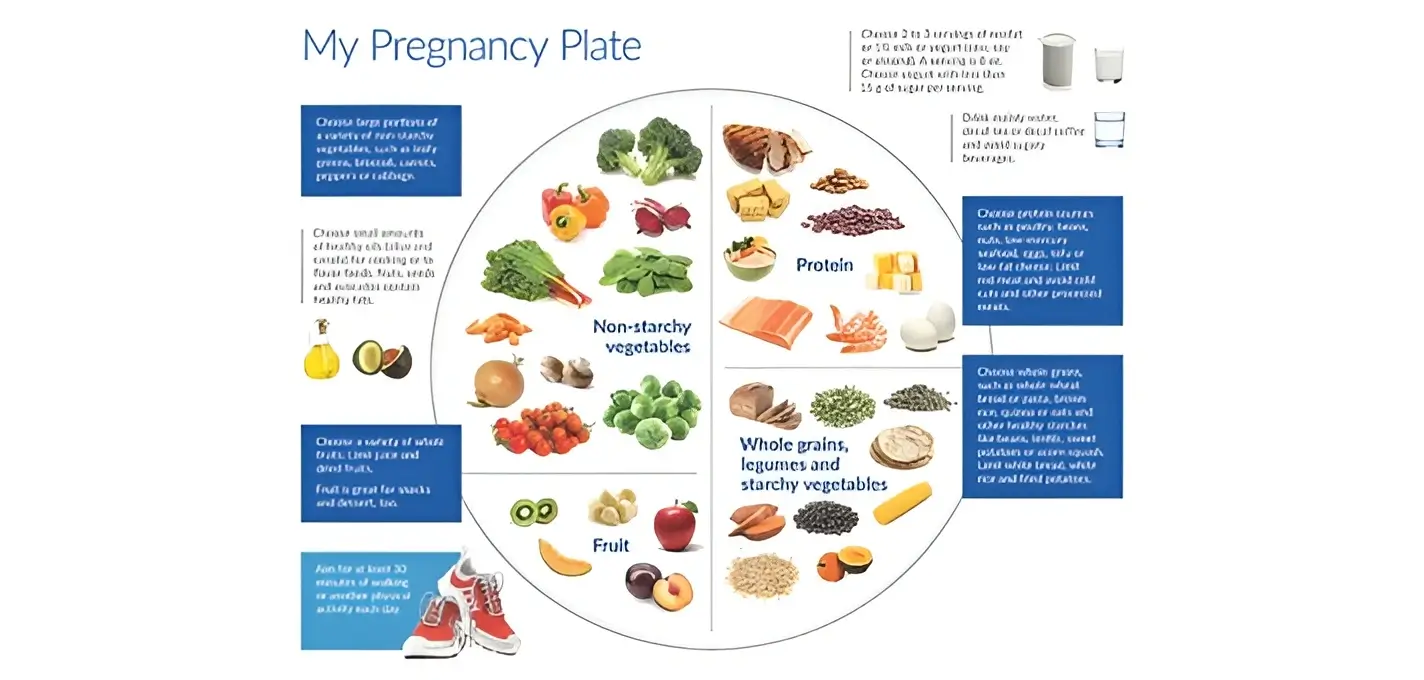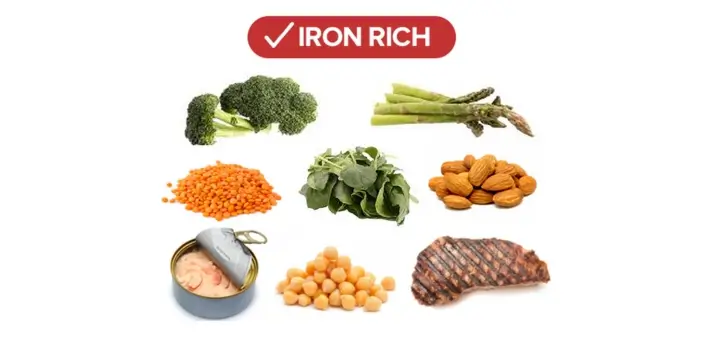
Medical Tourism for Eid: Overseas Pakistani Treatment Guide
The Overseas Pakistani’s Guide to Medical Tourism for Eid: Save Money, Heal Faster, Be Home for What Matters For Overseas Pakistanis Who Want World Class
The moment you learn you’re pregnant, your entire world shifts. Your body begins to change, your emotions change, and every decision suddenly bears greater weight. One of the first things I tell new mothers is to pay close attention to their nutrition. In these early weeks, your baby starts developing at an extraordinary pace, and the food you choose becomes the very first gift you offer your child.
As a gynecologist, I meet many women, both those who are expecting and those preparing for pregnancy, who feel unsure about what to eat. If you are in your first trimester (the crucial first three months), this guide is for you. I’ve kept the information straightforward and practical, reflecting the guidance I share daily in my clinic.

Some women need more than just general pregnancy advice; they need a diet that fits their unique situation. If you’ve been diagnosed with conditions like diabetes, PCOS, or thyroid issues, or if you’ve experienced pregnancy loss before, your diet in the first trimester matters even more. I’ve had many patients in these situations, and we always start by regulating their meals to meet their body’s certain needs. A woman with insulin resistance may need to limit certain carbs while still making sure her meals are full of nutrients. Someone with low iron needs foods that help the body absorb it properly. These aren’t just small tweaks; they support both the mother’s health and the baby’s earliest development. It’s not about fear; it’s about being intentional. A tailored approach isn’t restrictive; it’s responsible. If you know you fall into one of these groups, don’t wait to adjust your diet. Start early, and stay consistent.
Some women begin pregnancy with added challenges. Teens, underweight women, or those with poor appetite due to nausea often face early nutritional gaps. I’ve seen many feel frustrated or even guilty, but the focus should be on small, practical steps. Even simple options like yogurt, eggs, or fortified cereals can help. When good food is hard to access, we find manageable alternatives. Early support makes a big difference, so speak up, ask for help, and remember: every small meal matters.Some women begin pregnancy with added challenges. Teens, underweight women, or those with poor appetite due to nausea often face early nutritional gaps. I’ve seen many feel frustrated or even guilty, but the focus should be on small, practical steps. Even simple options like yogurt, eggs, or fortified cereals can help. When good food is hard to access, we find manageable alternatives. Early support makes a big difference, so speak up, ask for help, and remember: every small meal matters.
A healthy diet during pregnancy gives your baby the nutrients to grow and keeps you strong, vitalized, and ready for the journey ahead.
● For Your Baby’s Growth:
Everything your baby becomes, tiny heartbeat, soft bones, growing brain, starts with what you feed your body.
● For Your Own Strength:
Pregnancy can be played out. A balanced diet helps you stay on your feet and feel more like yourself.
● To Avoid Risks:
Getting the right nutrients lowers the chances of birth defects and pregnancy related health issues like high blood sugar.
● To Support a Smooth Delivery:
Good nutrition helps your body handle labor better, giving you more stamina when it really matters.
● For Postpartum Recovery:
Eating right now helps your body bounce back faster after birth, and gives you energy for the sleepless nights ahead.
● To Build Healthy Habits: Pregnancy is a chance to reset. The habits you build now can benefit both you and your baby long after delivery.

Healthy eating shouldn’t start after the pregnancy test,it should begin the moment you decide to try. I always tell women planning a pregnancy that their body is already doing important work, even before conception. Nutrients like folic acid, iron, and omega-3s should already be in your system before the baby begins to form. I’ve seen women improve fertility and reduce early risks just by making small changes: more vegetables, fewer processed snacks, cutting back on caffeine. It doesn’t need to be perfect, just compatible. If you’re thinking of having a baby, don’t wait. Start now. Your future self, and your baby, will thank you.
Many newly pregnant women unintentionally make choices that can affect their baby’s development. Avoid skipping meals, even when you feel nauseous. Don’t follow online trends or restrictive diets that aren’t designed for pregnancy. A common mistake I see in clinics across Pakistan is over-relying on packaged or fried foods, especially when cravings hit. These don’t offer the nutrition your body or baby needs. Instead, go for homemade, clean options , even a simple roti with yogurt is better than a bag of chips.
In Pakistani households, many traditional foods can support a healthy first trimester diet. Dishes like moong dal, khichdi, homemade chicken soup, and boiled eggs are excellent. But avoid items like raw lassi, undercooked meats at BBQs, and overly spicy pickles which may irritate your stomach or carry infection risks. Also, be cautious with herbal teas or desi remedies , always ask your doctor before trying anything, even if it’s “natural.”
In those first weeks, your baby begins taking the shape of key organs like the brain, heart, liver, kidney, bones, and spinal cord. It’s a vulnerable phase, and your body needs extra subsistence to support these important early changes. A good diet helps:
● Supply your baby with folic acid, iron, calcium, and protein
● Reduce the risk of birth defects
● Support healthy weight gain
● Prevent common problems like gestational diabetes
● Keep your energy levels up and your immunity strong

● Drink 8 to 10 glasses of water daily
● Avoid caffeine, soft drinks, undercooked meat, and raw dairy
● Don’t worry if you feel sick or can’t eat much, just try small meals more often
● Prenatal vitamins are important, but food should always be your first source of nutrition
● Walk daily for 20 to 30 minutes if you feel up to it

The Overseas Pakistani’s Guide to Medical Tourism for Eid: Save Money, Heal Faster, Be Home for What Matters For Overseas Pakistanis Who Want World Class

PCOS & Ramzan: The Hormone Reset Month Your Body Has Been Waiting For When You’re Fasting, Praying and Secretly Hoping Your Hormones Finally Cooperate ⏱

Can Fasting Help You Conceive? The Science of Autophagy Understanding How Smart Nutrition and Strategic Fasting Can Support Your Fertility Journey Naturally ⏱ Read Time:

Fasting & Pregnancy Reality Check: The Trimester-Wise Truth Every Expecting Mother Must Know Before Ramadan A deeply practical, doctor informed guide for mothers balancing faith,

Before Ramadan Arrives The Silent Health Step Many Expecting Mothers Regret Skipping For caring moms to be who want to protect their baby while honoring

Week 40 of Pregnancy: The Final Countdown When Every Sensation Feels Like “Is This It?” You made it. This is not just another week but
Please provide your details below, and we will contact you after you schedule your appointment.